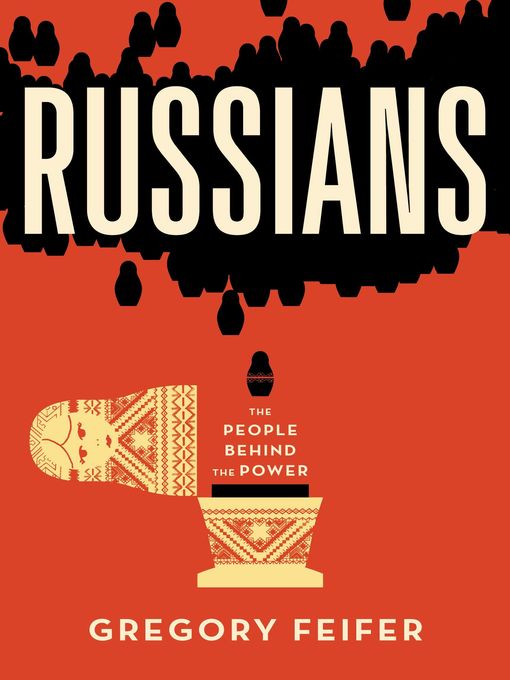
Russians
The People behind the Power
کتاب های مرتبط
- اطلاعات
- نقد و بررسی
- دیدگاه کاربران
نقد و بررسی

January 6, 2014
Early on in his second book, Feifer (The Great Gamble) makes clear his ambitious aim, which is to provide "a definitive explanation of what makes Russia Russian." While this goal might at first seem audacious, he is well-qualified, having worked for eight years as a journalist in Russia. In addition, his mother was born in Kazan and his father was a guide in the 1959 American National Exhibition in Moscow, where the two met. The book is an impressive piece of journalism, an effective mix of history, letters, current affairs, family history, interviews, and personal narrative, all of which addresses the premise that certain "formative influences" have shaped attitudes, behaviors, and a social and political order that is sometimes confounding to the Western mind. From alarming rates of alcoholism to the legacy of Siberian prison camps, from the creativity of Russian arts to corruption and "clan politics," the book provides a nuanced view of Russia, its people, and its place in a changing world. Feifer's assessment is especially critical of Putin's authoritarianism and he is admittedly pessimistic about the possibility of change in the near future, but the book makes a convincing argument for the importance of a clearer understanding of the Russian people and their values.

January 1, 2014
Former NPR Moscow correspondent Feifer (The Great Gamble: The Soviet War in Afghanistan, 2009) returns with an analysis of the Russian character derived from his family history and many years of research and travels. In a volume that's very current--the author delivers commentary on both Pussy Riot and Edward Snowden--Feifer presents a series of topics that, combined, paint a stark and only mildly hopeful portrait of Russia. Poverty, drinking, cold and punishment--these are among his principal subjects. Throughout, the author uses a variety of techniques: memoir, interviews with significant Russians and others in the region, summaries of key historical events, and anecdotes about and documents from family and friends (his father is also a writer about the region). Feifer is resolutely anti-Putin, condemning him continually for returning the country to some of its nastier ways after the fall of the Soviet Union and the elevation of hopes in the West. (He writes that Putin's abilities are "feeble at best.") In the opening chapter on poverty, the author offers some grim evidence about living conditions in the country: inefficient health care (HIV-AIDS is a major problem), racist hate crimes, the breakdown of infrastructure and corruption everywhere. Conversely, he follows with a chapter about the vast wealth in the country, mostly from energy; the author (and others) recognizes that Russia's dependence on energy income presents a long-term problem. The Russian fondness for vodka, writes the author, may be a cliche, but it's one based on oceans of evidence. Feifer chides the Russian government for doing little about the problem, and he writes about Russian families, the roles of women, the attitudes toward gays and other minorities, racism and anti-Semitism. He highlights the cronyism and the pervasive corruption, and he warns Western countries not to have any "illusions about what kind of country they are dealing with." Dark but skillfully painted pictures at an exhibition.
COPYRIGHT(2014) Kirkus Reviews, ALL RIGHTS RESERVED.

























دیدگاه کاربران